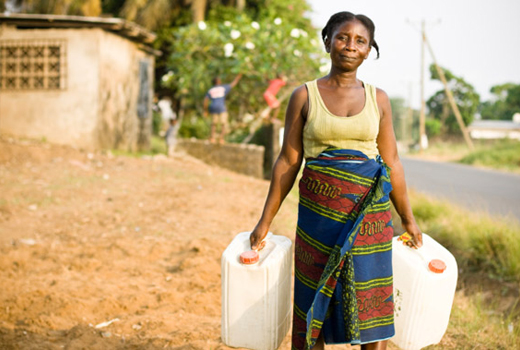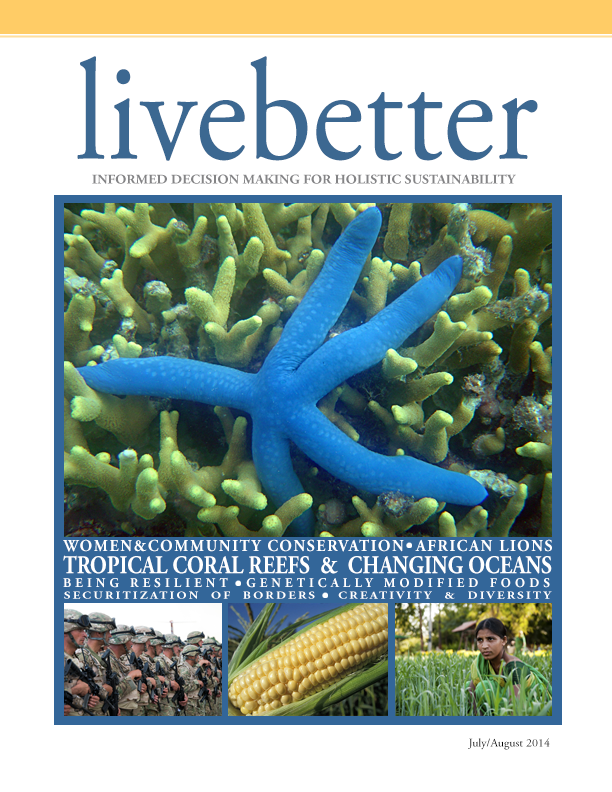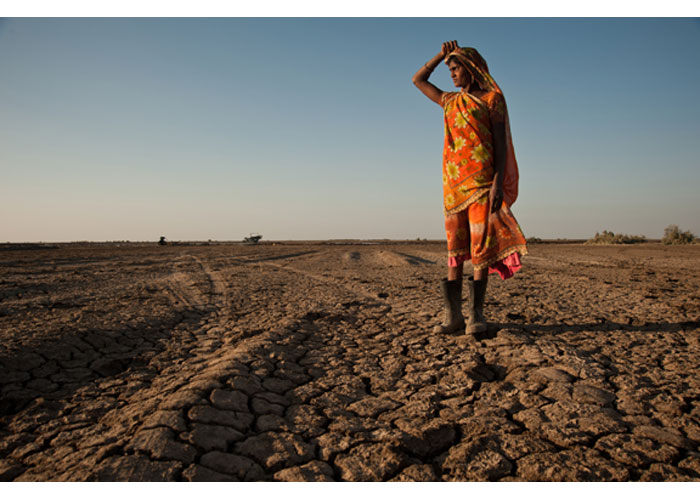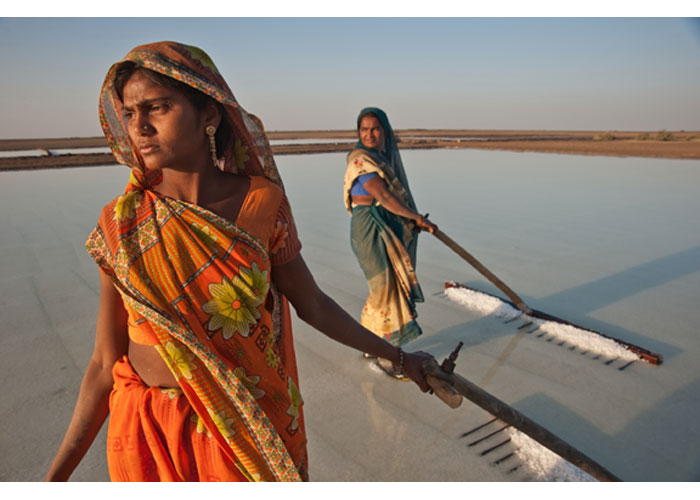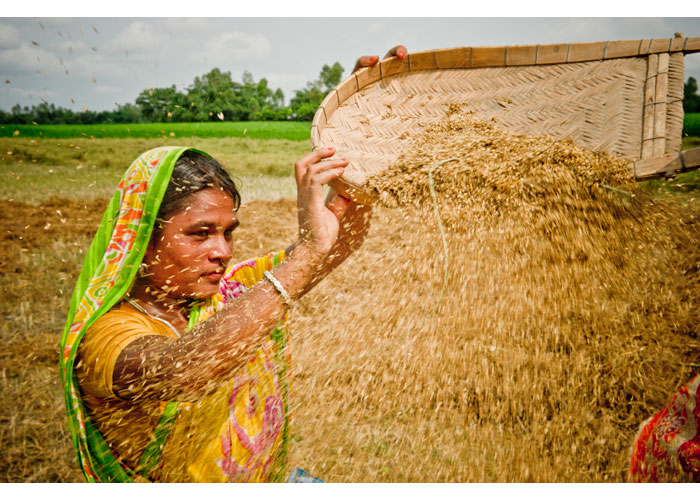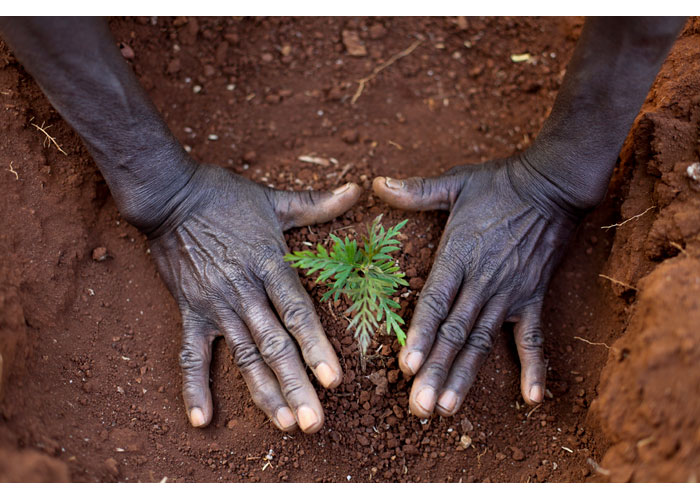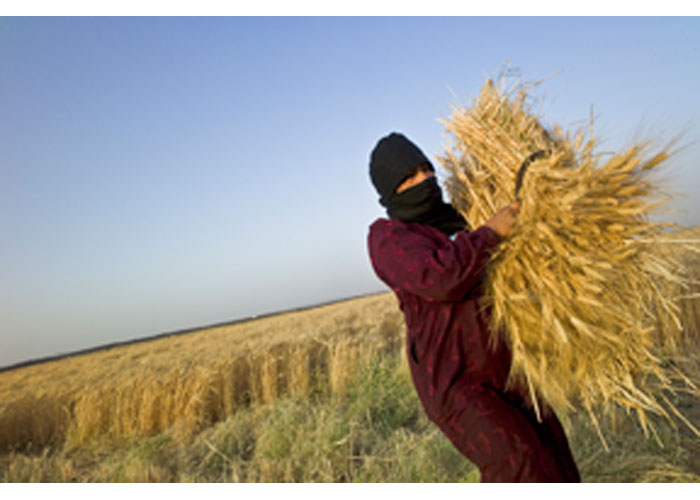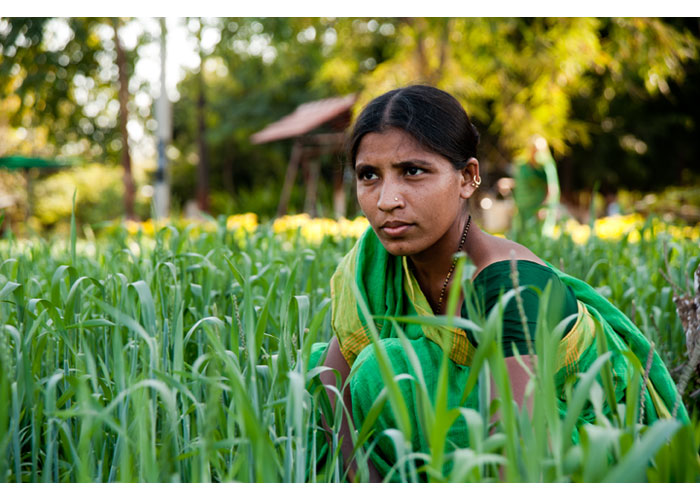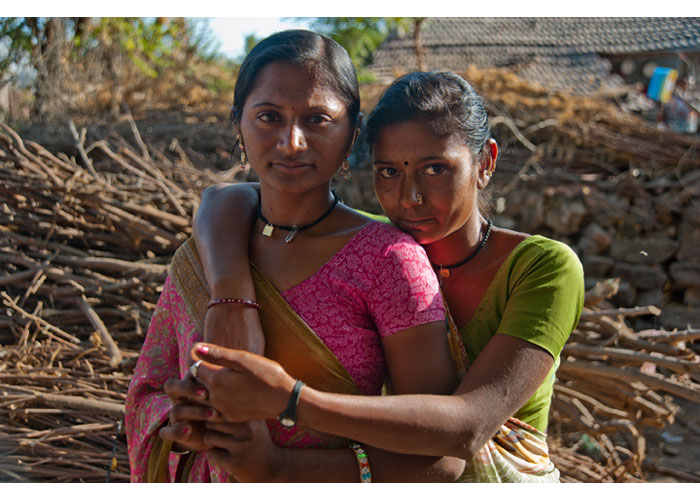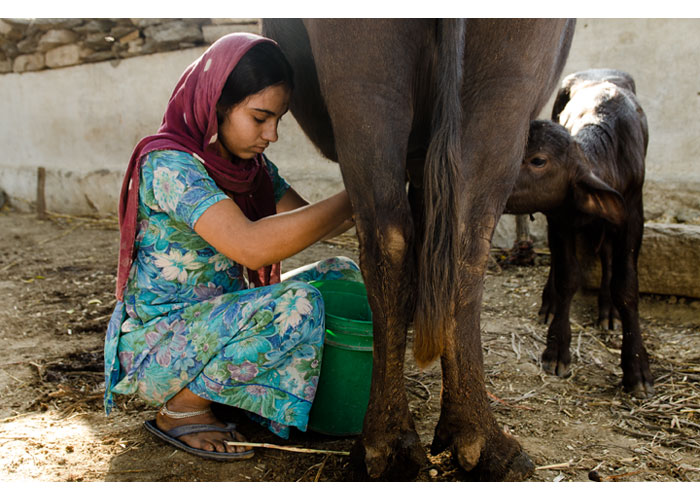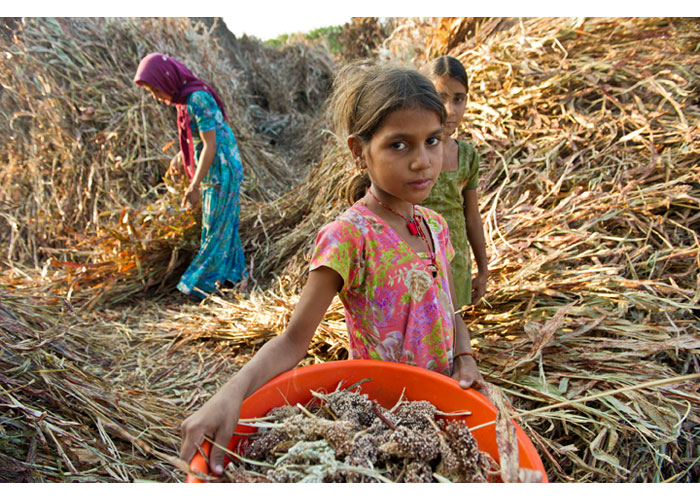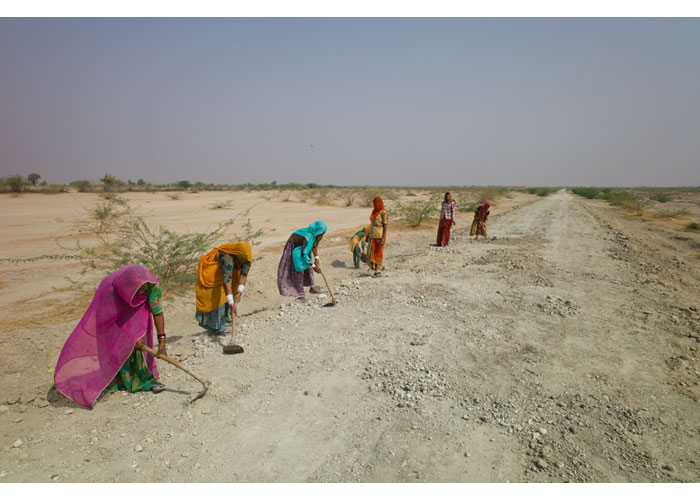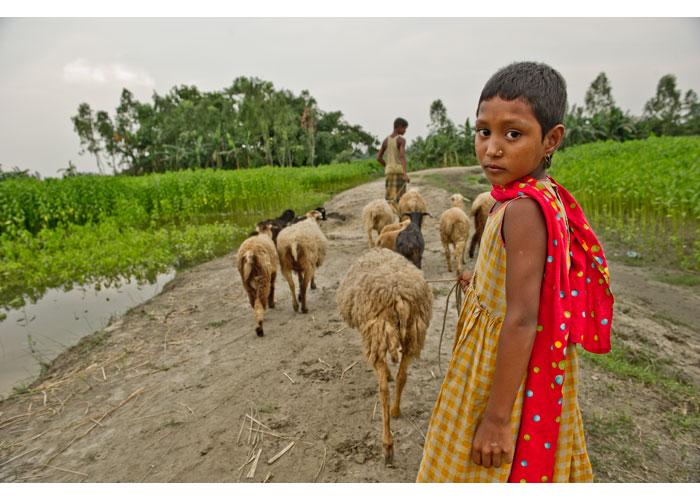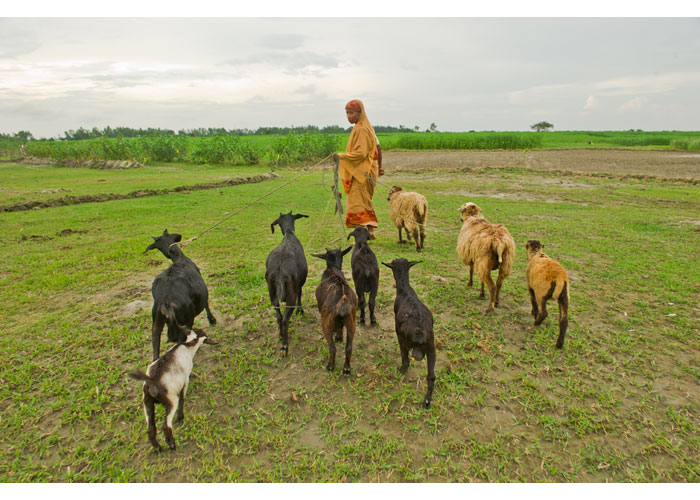Africa Water is Life Water Gathering in Villages
In rural Mozambique women are responsible for the provision of basic necessities, such as food, shelter and water. The intra-household divisions between men and women in sub-Saharan families and communities are growing rapidly, which is creating an ever-expanding culture of gender discrimination and a general weakening of familial foundations, economic growth and educational opportunity. Young girls spend an average of 15 to 17 hours each week collecting water with little extra time for even primary levels of education or other socially beneficial activities.
Her young, calloused feet, covered with dust and open, pink sores from a long morning spent walking, stepped into the green water and planted themselves comfortably in the mud of the river bed. Ten-thirty in the morning and her eyes, still adapting to the blazing, sub-Saharan light, burned as the sun approached full furry. She squinted as sweat dripped from her eye lids, pulled the cloth holding her black hair a little further down upon her brow and touched the lukewarm water with her extended right fingertips.
The water flowed evenly over her glistening brown skin and dampened the hem of the orange kampala wrapped tightly around her waste. A little deeper and the loose sludge filled the spaces between her toes like dough squeezing through her mother’s fingers. The thick clay crept up her lower calves and held her firmly in place. She exhaled softly through her mouth, eyes closing in momentary solace as she tried to misplace reality, body idle for the first time in six long hours. She had risen without greeting at 4:30 a.m., already sweltering from a restless night without wind, to clean her single-room, dirt-floor bamboo hut and to take care of her two younger brothers. After rinsing her arms and face with water collected from a week’s worth of rain and a bar of soap bought at the local market three months prior, she was off, stars lighting her path, blue jerry can in-hand, a small amount of food in the pack slung from her trim, left shoulder.
She wondered some days what it would be like to wade out to the middle of the river, to pull her cemented feet out of the clay and to let the current guide her away. Twelve years old and she had made this same journey every day for the past four years – since she was strong enough to hoist the blue jug to the top of her head and balanced enough to take and to protect the water over the 10-mile trek back home. “Just float away,” she thought to herself, “pull yourself free one toe at a time.”
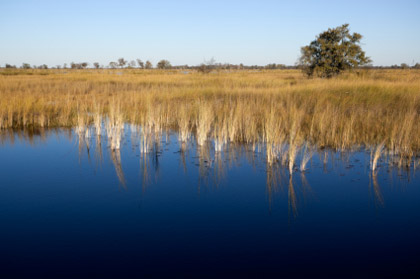
© iStockphoto.com/fotogaby
A splash of water swiped her across the face, rudely dragging her back to reality as a cow mooed angrily and stomped the water in protest to his master’s prompting to enter and to cool off before continuing. Awake and present, she retrieved her jerry can from the shore where she had left it. She slowly dipped it into the river and watched the herd of 25 skinny, brown cows drink and relieve themselves beside her, their urine and fecal matter disrupting the otherwise calm river. Large trucks carrying workers and their gear, as well as some overly crowded passenger cars, roared over the two-lane bridge spanning the river, the girl watching the noisy vehicles with offended annoyance.
She looked down at her jerry can, now full, and pulled it gently from the river. Holding it by her side as she dodged cattle and swatted buzzing flies from her neck, she trudged her way back up the river bank and onto the worn, dirt path parallel to the long, asphalt highway. The muddy water hid the blue of her jerry can and left a thin, oily residue on its insides as it sloshed back and forth like acidic waves beating the rocky shores of the Indian Ocean just a few miles east. Several layers of sediment, runoff and animal debris flavored her valuable, fluid collection, and she cupped her hands to test it. Grainy yet quenching, the water was good enough; she cautiously placed it on her head and began walking home.
Our truck pulled into a dirt clearing filled with women and hundreds of children, all dancing and clapping their hands to the rhythm of a song reserved for occasions such as this. Their bare feet, bruised and misshapen, pounded the earth and shook it to life as we unlocked the truck doors. We climbed out and welcomed them as they lined up to greet us, to shake our hands and to give us a smile. To our left, a team of young men pointed and shared instructions as a drill rig backed into place. Hours later, after much sweating and playful attacks by youngsters with an undeniable desire for attention and love, a young girl with a blue jerry can atop her head emerged from the brush. She stopped beside some other women and unpacked the water jug from her head. She breathed in heavily for a good minute while stretching her neck side-to-side and rolling her shoulders, seemingly unwinding from what must have been a lengthy trip. I watched as she closed her eyes, bent down on two knees and silently escaped the playing and joyful madness occurring all around her. Her right fingertips sifted through the sand beneath her, and I watched as she let it fall slowly from her hand as it sifted out between her fingers. She stood, picked the bucket up with one hand and walked patiently into a nearby bamboo hut.
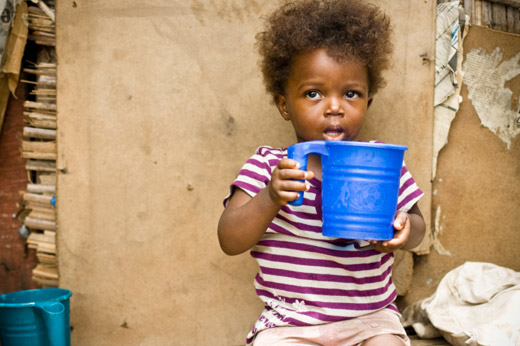
© iStockphoto.com/MShep2

